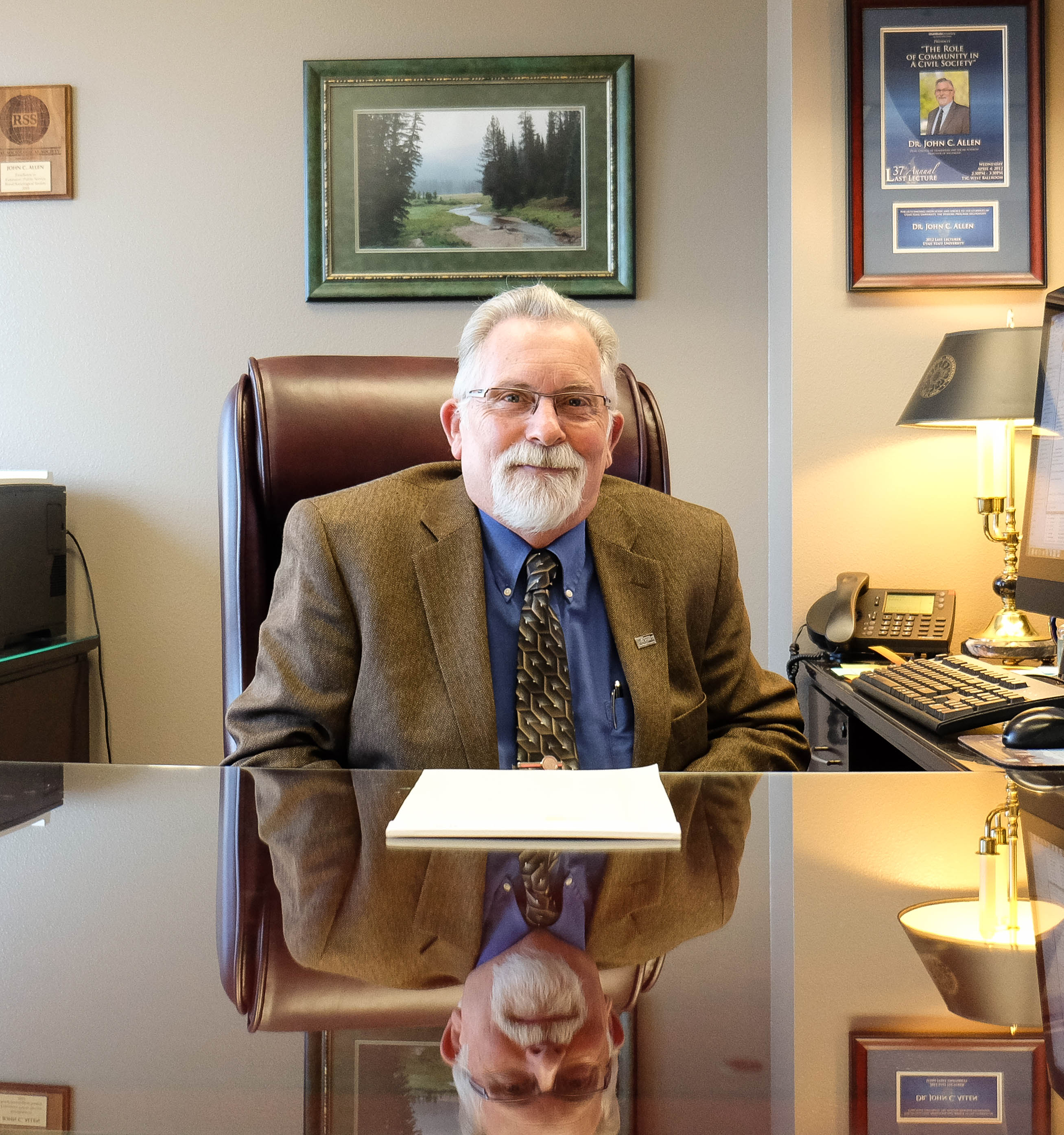Retiring CHaSS Dean talks of decisions, advice and accomplishments
“I would’ve never dreamed that someday I’d get the big red chair,” said John C. Allen, the dean of the College of Humanities and Social Sciences, or CHASS.
While pursuing careers as a journalist, sociology professor, rancher and market researcher, Allen never imagined he would one day serve as dean of a college at Utah State University. After serving almost six years as dean, Allen is giving up his big red chair and retiring.
The Utah Statesman spoke with Allen about his decision to retire, his best advice to students and his favorite part about being dean. The following are excerpts from the interview.
Utah Statesman: We recently heard about your decision to leave USU. When did you decide to retire?
John Allen: My wife and I made the decision to retire within the last month. I will retire next July 1, 2016. This is my last year as dean. We’re excited about moving into a new phase of our life. We’re going to move to the Oregon coast and, after that, I don’t know what we’ll do.
US: Is this where you expected your life to be when you were in college?
JA: No. I think when I started out, I wanted to be a journalist. Then I wanted to be a writer. Then, as an undergraduate, I was exposed to the social impact assessments of rural communities. And I thought, “I think I’d like to do that.”
US: How did you develop an interest in so many different fields?
JA: I was raised isolated on a ranch. We didn’t have TV, so I read. My grandma would bring me boxes of books. I read a lot. I still do read a lot. I’d never been anywhere. I milked cows every day, which meant I couldn’t leave. I never traveled, so I looked at the world through books. I read everything I could get my hands on. I read encyclopedias. I still remember the first one my parents got.
US: You’ve been here at Utah State for a long time. What do you believe are your biggest accomplishments while serving here?
JA: What I’ve tried to do is to build community in the college. If you build relationships between people, they will do more than they ever thought they could do. I think we’ve done some of that.
I hope we’ve improved moral. I hope the people who work here at this college feel proud this is where they’re at and that they’re making a contribution.
US: How have your college majors helped you in your careers? [Dean Allen earned his doctorate, master’s and bachelor’s degrees in sociology.]
JA: I’ve had five different careers. I’ve been a journalist, a rancher, market researcher, academic, rural developer and now I’m a dean and that was never planned. Education provided me with a background to do a variety types of work.
What sociology did for me was to make me back away from looking at every interaction. That same way of looking at the world allows me to be dean. That’s what this job does. You really give up your self-identity when you become dean. I gave up all my work that I’m passionate about to focus on other people. And sociology helped me to prepare for that.
US: As you are leaving Utah State, what advice would you give to students?
JA: The first things is don’t take an easy course. Only take hard courses. Easy courses have no value, only on paper. The hard courses you remember all your life. I think that’s the key to education, because [a hard course] gives you anxiety. I think anxiety actually helps us grow.
Spend the energy that you’d spend being anxious on the excitement of looking for new things and meeting new people. And I know that’s not an easy transition, but I think that’s important.
US: What is your favorite part about being dean?
JA: The students and the faculty. The reason I’ve stayed in the academy is because every year, there’s a new group of students that walk through those doors and they have bright eyes and ambition, and they’ve got anxieties and fears and hopes and dreams. They’re so passionate.
US: Anything else you’d like to add?
JA: I think the contribution we make as a university is four things. We identify and collect knowledge that has been done before us. We protect that knowledge. We pass that knowledge on. And then we create new knowledge, and we protect it and pass it on, and then it’s a cycle. That’s what we’re about.

